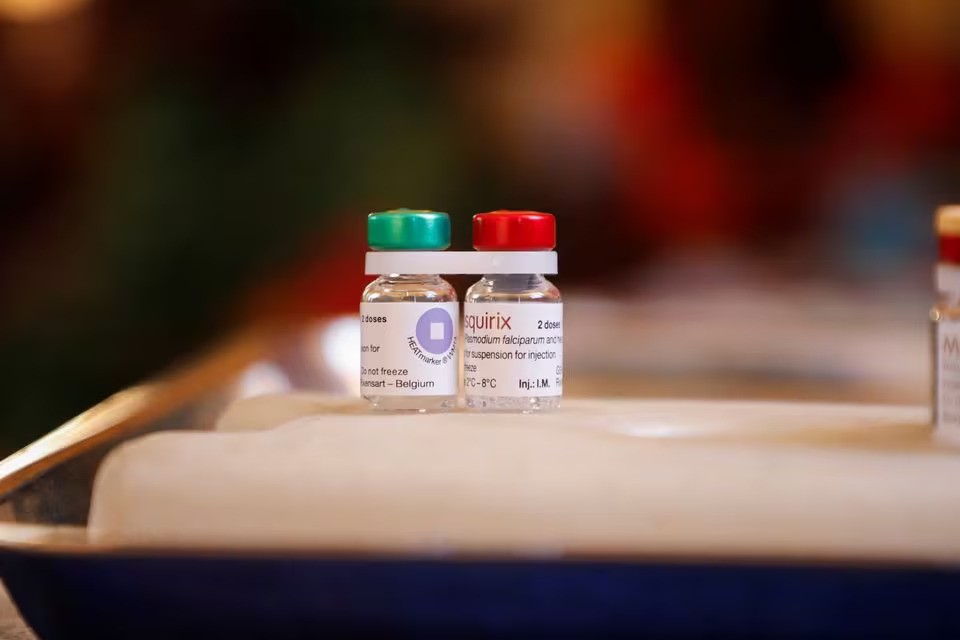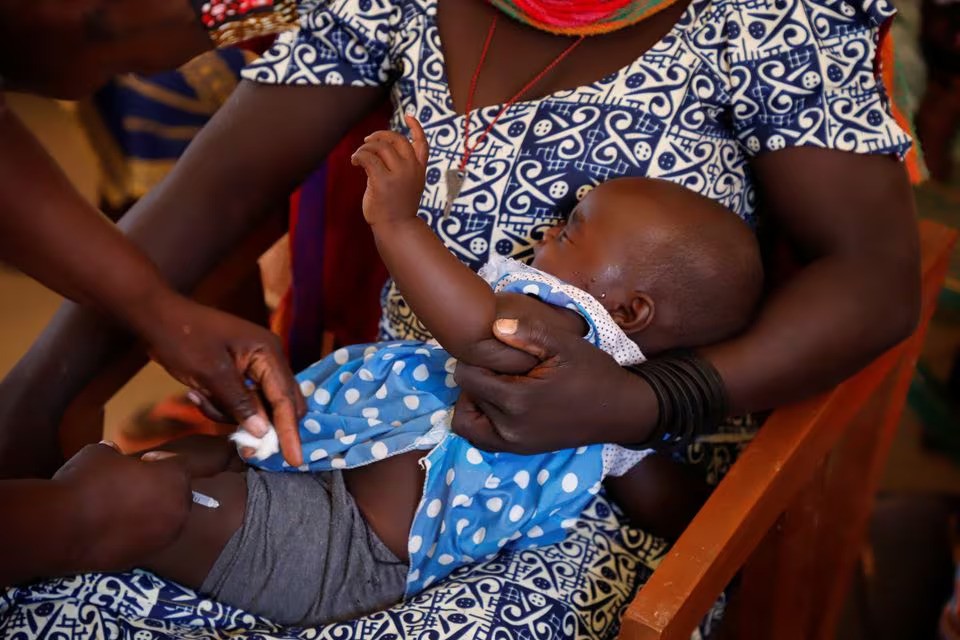Cameroon Initiates Historic Global Rollout Of Malaria Mass Vaccination
Cameroon initiates historic global rollout of malaria mass vaccination, which is a significant advancement in the global battle against the mosquito-borne illness. However, limited attendance at clinics for the administration of the shot was reported.
Author:Elisa MuellerReviewer:Camilo WoodJan 23, 202444.1K Shares938.4K Views

Cameroon initiates historic global rollout of malaria mass vaccination, which is a significant advancement in the global battle against the mosquito-borne illness. However, limited attendance at clinics for the administration of the shot was reported.
Developed by British pharmaceutical company GSK and approved by the World Health Organization (WHO) after nearly four decades of development, the RTS,S vaccine aims to complement existing measures like bed nets in the fight against malaria. This disease claims the lives of nearly half a million children under the age of five each year in Africa.
Following successful trials, including those conducted in Ghana and Kenya, Cameroon has become the pioneering country to implement doses through a routine program. The global vaccine alliance Gavi reported on this initiative, which 19 other nations plan to replicate this year. The target is to administer malaria vaccinations to approximately 6.6 million children in these nations by the years 2024-25.
Mohammed Abdulaziz from the Africa Centres for Disease Control and Prevention (CDC) expressed anticipation for a momentous occasion, stating, "We have been waiting for a day like this." This sentiment was shared during a collaborative online briefing involving the WHO, Gavi, and other organizations.
On Monday, at Cliniques des Anges hospital in Douala, Caroline Badefona, the hospital manager, reported that six infants, comprising five girls and one boy aged six months, received vaccinations.
“„It went very well. We are proud to have this programme in place because it will eradicate malaria in children aged six to 59 months.- Caroline Badefona
In a health center in the northern Cameroon district of Datcheka, a reporter noted that 12 children received vaccinations early on Monday. However, health workers in other centers mentioned that parents had not been sufficiently informed about the vaccine, and some expressed reluctance to give consent for their children to receive it. Some were not even informed about the commencement of the campaign.
"The reason I didn't accept is because I wasn't made aware of it - I didn't know it existed," said Audrey Stella, a mother who declined to have her child vaccinated at the Japoma District Hospital in Douala.
Cases Rising
The fight against malaria has faced challenges in recent years due to disruptions linked to the COVID-19 pandemic and other issues. According to the WHO, cases increased by approximately 5 million year-on-year in 2022. Over 30 African countries have expressed interest in introducing the vaccine, and concerns about a supply shortage have eased since a second vaccine completed a crucial regulatory step in December.
The WHO's director of immunization, Kate O'Brien, mentioned during the briefing that the rollout of the second vaccine is anticipated to provide sufficient supply, meeting the high demand and reaching millions more children. The R21 vaccine, developed by the University of Oxford and the Serum Institute of India, is expected to be launched in May or June, as stated by Gavi's Chief Programme Officer, Aurelia Nguyen.
"Having two vaccines for malaria will help to close the huge gap between demand and supply and could save tens of thousands of young lives, especially in Africa," said Tedros Adhanom Ghebreyesus, director-general of the WHO, at a meeting of the U.N. body's executive board on Monday.
Certain experts have voiced skepticism regarding the potential impact of the vaccines, emphasizing that attention and funding should not be diverted from the broader effort against the longstanding threat of malaria and the use of established preventive tools such as bed nets. During the briefing, health professionals noted that there had been extensive community outreach efforts in conjunction with the rollout to address any vaccine reluctance and stress the significance of continuing all preventative measures.
Jump to

Elisa Mueller
Author
Elisa Mueller, a Kansas City native, grew up surrounded by the wonders of books and movies, inspired by her parents' passion for education and film.
She earned bachelor's degrees in English and Journalism from the University of Kansas before moving to New York City, where she spent a decade at Entertainment Weekly, visiting film sets worldwide.
With over 8 years in the entertainment industry, Elisa is a seasoned journalist and media analyst, holding a degree in Journalism from NYU. Her insightful critiques have been featured in prestigious publications, cementing her reputation for accuracy and depth.
Outside of work, she enjoys attending film festivals, painting, writing fiction, and studying numerology.

Camilo Wood
Reviewer
Camilo Wood has over two decades of experience as a writer and journalist, specializing in finance and economics. With a degree in Economics and a background in financial research and analysis, Camilo brings a wealth of knowledge and expertise to his writing.
Throughout his career, Camilo has contributed to numerous publications, covering a wide range of topics such as global economic trends, investment strategies, and market analysis. His articles are recognized for their insightful analysis and clear explanations, making complex financial concepts accessible to readers.
Camilo's experience includes working in roles related to financial reporting, analysis, and commentary, allowing him to provide readers with accurate and trustworthy information. His dedication to journalistic integrity and commitment to delivering high-quality content make him a trusted voice in the fields of finance and journalism.
Latest Articles
Popular Articles
